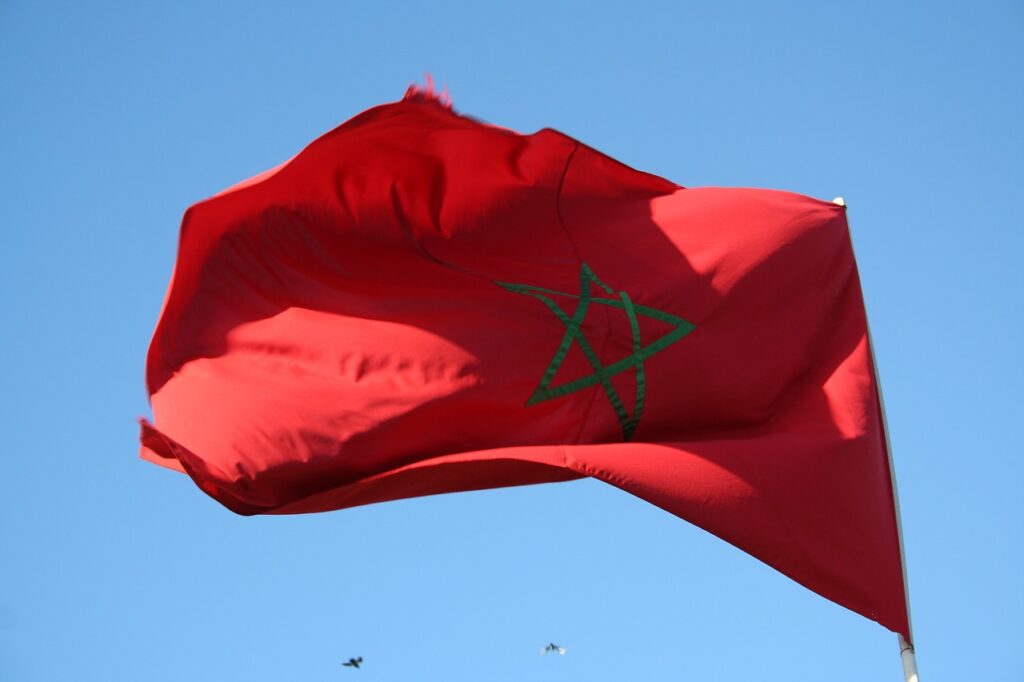
The government increased overall efforts to protect trafficking victims. The government did not have formal comprehensive victim identification SOPs or a national victim referral process for most of the reporting period but collaborated with an international organization to establish standard procedures and a draft NRM. The government completed and approved a comprehensive victim identification guide and NRM in March 2023; both were pending implementation at the end of the reporting period. In 2022, the government identified 166 trafficking victims, compared with the identification of 169 victims in 2021. Of the 166 victims, 101 were sex trafficking victims, 27 forced labor victims, four forced begging victims, 45 victims of “practices similar to slavery,” and eight forced criminality victims; numerous victims experienced multiple forms of exploitation. The identified 166 victims included 43 men, 26 boys, 39 women, and 58 girls; ten identified victims were foreign nationals. Despite the lack of comprehensive SOPs and an NRM during the full reporting period, the Ministry of Interior (MOI) used standard procedures for the reception, orientation, and care of undocumented migrants and trafficking victims encountered during border management activities. In the absence of a formal referral mechanism, the government continued to informally refer victims to services. The government reported referring all 166 identified victims to either government, NGO, or international organization shelters or services. During the previous reporting period, the government referred 20 victims to government shelters and provided services to 54 victims but did not report whether the remaining 95 identified victims received any services. Each branch of the National Security Directorate maintained a support unit for women victims of violence to ensure a more victim-centered approach to sensitive cases, including cases involving female trafficking victims, and their referral to services.
The government did not provide shelter or psycho-social services specific to the needs of victims of all forms of trafficking and the overall lack of shelters and protection services for victims continued to impede overall protection efforts. In March 2023, the government announced it was in the process of establishing four specialized shelters for trafficking victims in Oujda, Casablanca, Agadir, and Tangier with plans to eventually establish specialized shelters in all 12 provinces. In the meantime,
The government increased overall efforts to protect trafficking victims. The government did not have formal comprehensive victim identification SOPs or a national victim referral process for most of the reporting period but collaborated with an international organization to establish standard procedures and a draft NRM. The government completed and approved a comprehensive victim identification guide and NRM in March 2023; both were pending implementation at the end of the reporting period. In 2022, the government identified 166 trafficking victims, compared with the identification of 169 victims in 2021. Of the 166 victims, 101 were sex trafficking victims, 27 forced labor victims, four forced begging victims, 45 victims of “practices similar to slavery,” and eight forced criminality victims; numerous victims experienced multiple forms of exploitation. The identified 166 victims included 43 men, 26 boys, 39 women, and 58 girls; ten identified victims were foreign nationals. Despite the lack of comprehensive SOPs and an NRM during the full reporting period, the Ministry of Interior (MOI) used standard procedures for the reception, orientation, and care of undocumented migrants and trafficking victims encountered during border management activities. In the absence of a formal referral mechanism, the government continued to informally refer victims to services. The government reported referring all 166 identified victims to either government, NGO, or international organization shelters or services. During the previous reporting period, the government referred 20 victims to government shelters and provided services to 54 victims but did not report whether the remaining 95 identified victims received any services. Each branch of the National Security Directorate maintained a support unit for women victims of violence to ensure a more victim-centered approach to sensitive cases, including cases involving female trafficking victims, and their referral to services.
The government did not provide shelter or psycho-social services specific to the needs of victims of all forms of trafficking and the overall lack of shelters and protection services for victims continued to impede overall protection efforts. In March 2023, the government announced it was in the process of establishing four specialized shelters for trafficking victims in Oujda, Casablanca, Agadir, and Tangier with plans to eventually establish specialized shelters in all 12 provinces. In the meantime, the government continued to provide services to female and child victims of violence – including potential trafficking victims – at 40 reception centers staffed by nurses and social workers at major hospitals, as well as in MOJ protection units in Moroccan courts. Moroccan law enforcement agencies reportedly continued to utilize focal points to work directly with these reception centers and MOJ units, and they continued to use a list of NGO service providers to whom authorities could refer trafficking victims for care. The government reported these services were available to adult male victims but acknowledged they were more difficult to access. Prosecutors in the courts of first instance and the courts of appeal – in coordination with the Ministry of Health – had the authority to order trafficking victims be removed from exploitative situations and placed in the care of a hospital or civil society organization. The government also reported it placed an unknown number of officials in courts throughout the country, who were responsible for identifying and referring trafficking victims to psycho-social support, medical services, and legal aid. The government, however, did not report how many – if any – victims these officials or prosecutors referred to protection services. The government continued to rely heavily on NGOs and international organizations to provide assistance to victims and provided some financial assistance to organizations assisting child labor and child trafficking victims but did not otherwise report providing financial resources to organizations assisting trafficking victims. The government continued to encourage victims to cooperate in investigations against traffickers, but it did not report the number of victims who did so during the reporting period or if it took measures to protect witness confidentiality, nor did it report if victims received restitution from traffickers. The government did not report assisting in the voluntary repatriation of foreign trafficking victims during the reporting period; between January and November 2021, the government organized the voluntary repatriation of 2,376 foreign nationals but did not report if there were trafficking victims among that population. The government did not report providing legal alternatives to the removal of foreign victims of trafficking to countries where they might face retribution or hardship, aside from coordinating with international organizations on asylum and refugee cases.
The MOI continued to lead the government’s National Strategy for Immigration and Asylum, which aimed to regularize the legal status of refugees and asylum-seekers, including trafficking victims. Under this strategy, foreign trafficking victims could benefit from various services, including reintegration assistance, education, vocational training, social services, and legal aid. However, the government did not report proactively identifying potential trafficking victims during these regularization efforts or how many foreign trafficking victims, if any, benefited from these services. Due to the lack of proactive screening and identification measures, some foreign trafficking victims may have remained unidentified. Furthermore, foreign trafficking victims – especially among the sub-Saharan African undocumented migrant population – remained vulnerable to penalization solely for immigration offenses committed as a direct result of being trafficked. Undocumented migrants reported they feared arrest and deportation and therefore were reluctant to report trafficking or other types of crimes to the police.
In the meantime, the government continued to provide services to female and child victims of violence – including potential trafficking victims – at 40 reception centers staffed by nurses and social workers at major hospitals, as well as in MOJ protection units in Moroccan courts. Moroccan law enforcement agencies reportedly continued to utilize focal points to work directly with these reception centers and MOJ units, and they continued to use a list of NGO service providers to whom authorities could refer trafficking victims for care. The government reported these services were available to adult male victims but acknowledged they were more difficult to access. Prosecutors in the courts of first instance and the courts of appeal – in coordination with the Ministry of Health – had the authority to order trafficking victims be removed from exploitative situations and placed in the care of a hospital or civil society organization. The government also reported it placed an unknown number of officials in courts throughout the country, who were responsible for identifying and referring trafficking victims to psycho-social support, medical services, and legal aid. The government, however, did not report how many – if any – victims these officials or prosecutors referred to protection services. The government continued to rely heavily on NGOs and international organizations to provide assistance to victims and provided some financial assistance to organizations assisting child labor and child trafficking victims but did not otherwise report providing financial resources to organizations assisting trafficking victims. The government continued to encourage victims to cooperate in investigations against traffickers, but it did not report the number of victims who did so during the reporting period or if it took measures to protect witness confidentiality, nor did it report if victims received restitution from traffickers. The government did not report assisting in the voluntary repatriation of foreign trafficking victims during the reporting period; between January and November 2021, the government organized the voluntary repatriation of 2,376 foreign nationals but did not report if there were trafficking victims among that population. The government did not report providing legal alternatives to the removal of foreign victims of trafficking to countries where they might face retribution or hardship, aside from coordinating with international organizations on asylum and refugee cases.
The MOI continued to lead the government’s National Strategy for Immigration and Asylum, which aimed to regularize the legal status of refugees and asylum-seekers, including trafficking victims. Under this strategy, foreign trafficking victims could benefit from various services, including reintegration assistance, education, vocational training, social services, and legal aid. However, the government did not report proactively identifying potential trafficking victims during these regularization efforts or how many foreign trafficking victims, if any, benefited from these services. Due to the lack of proactive screening and identification measures, some foreign trafficking victims may have remained unidentified. Furthermore, foreign trafficking victims – especially among the sub-Saharan African undocumented migrant population – remained vulnerable to penalization solely for immigration offenses committed as a direct result of being trafficked. Undocumented migrants reported they feared arrest and deportation and therefore were reluctant to report trafficking or other types of crimes to the police.
from 2023 Trafficking in Persons Report – U.S. Department of State
2023 Trafficking in Persons Report – United States Department of State

